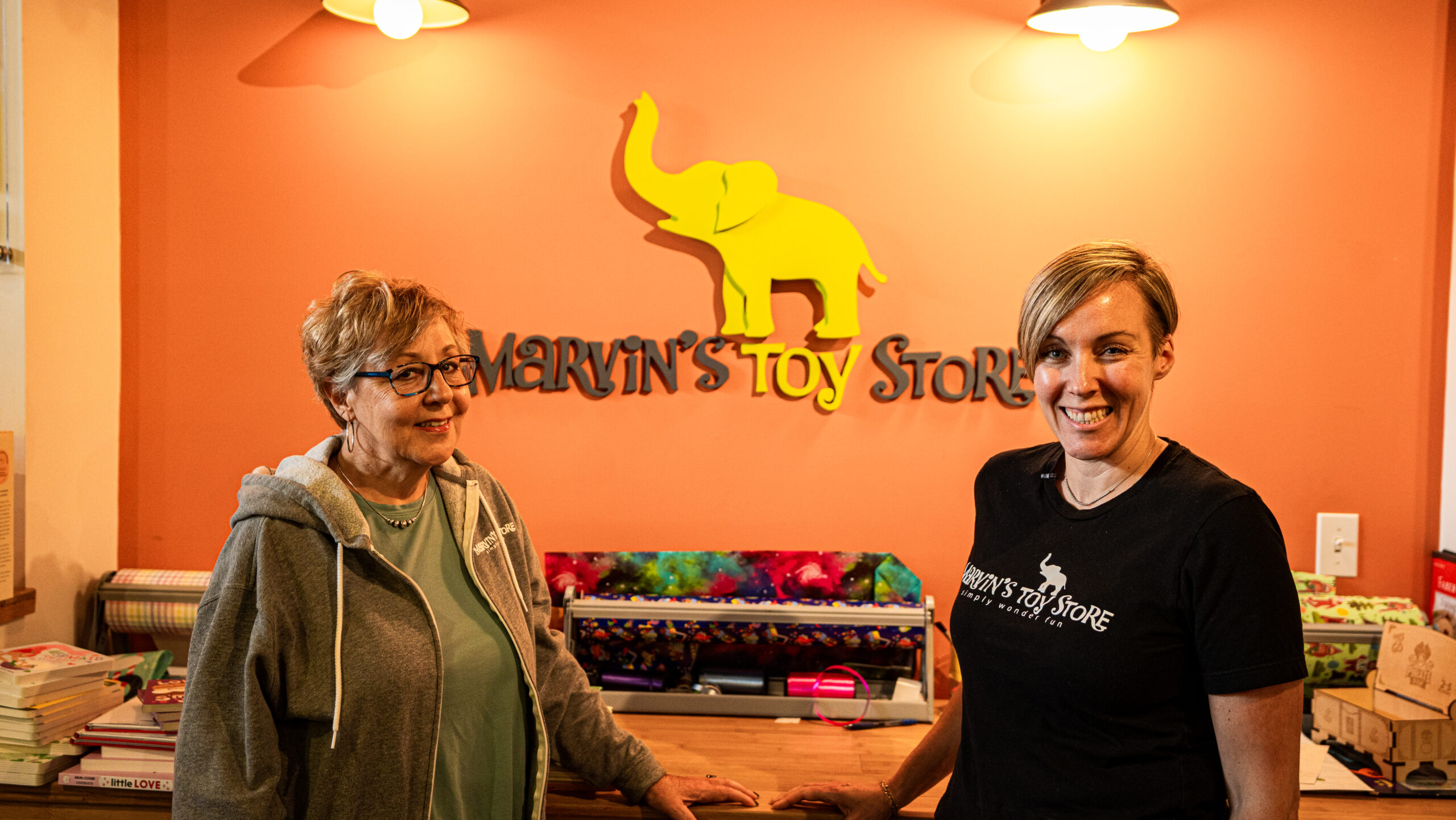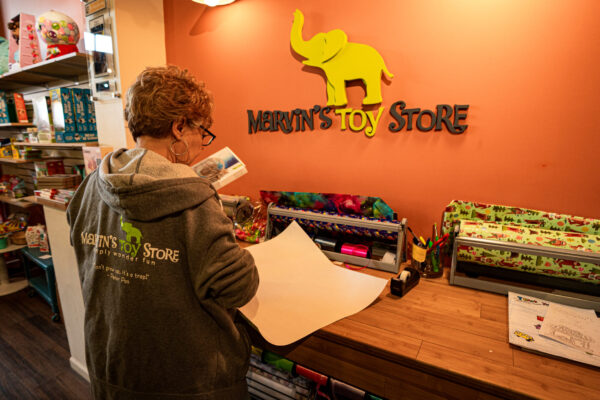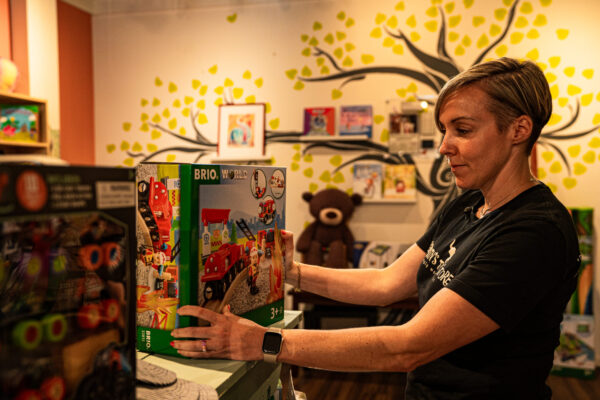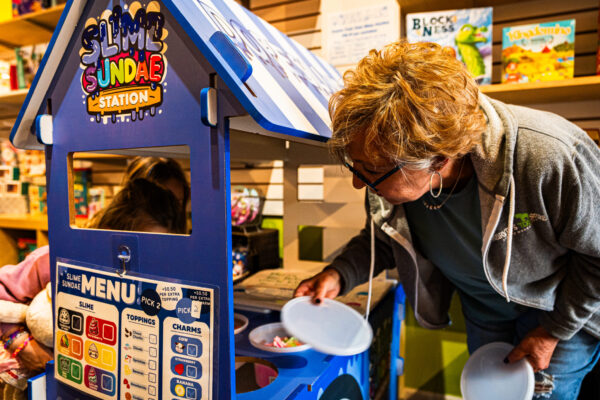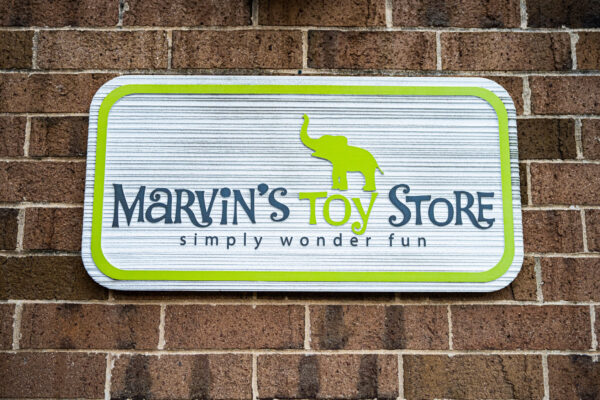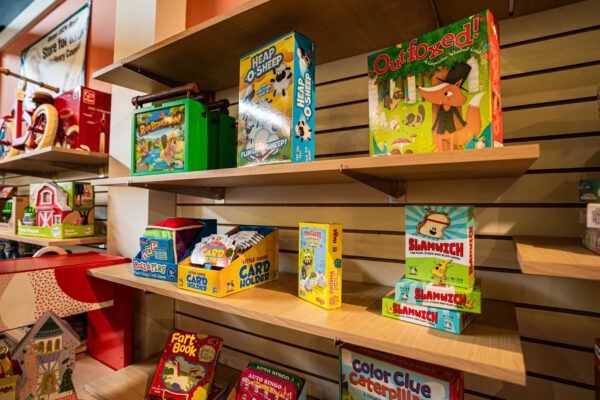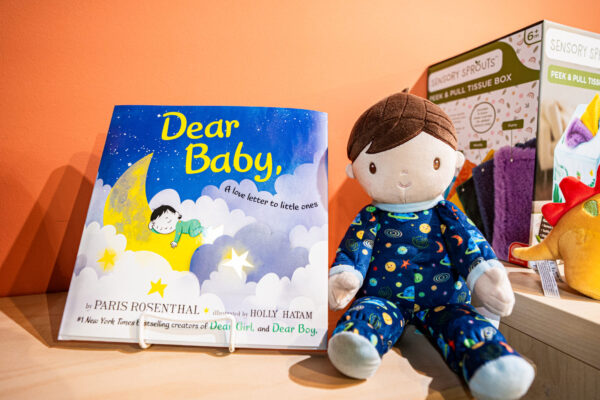The increased costs associated with tariffs impact all of us, affecting millions of people. Retailers of all kinds across Illinois import many of the goods they sell. Tariffs have created more uncertainty for retailers than many have ever experienced. The Illinois Retail Merchants Association has found that while retailers are trying to hold-off on price increases, it’s impossible to absorb the extra expenses for numerous business owners who function on very small margins – which forces consumers to pay more.
Retailers like Lori and Kate McConville, co-owners of Marvin’s Toy Store in Crystal Lake, enrich our economy and strengthen our communities, even during the uncertainty of increased tariff expenses. To better understand how Marvin’s Toy Store is dealing with the escalation of existing tariffs, we sat down for a conversation with Lori and Kate.
Aerobie Fligo Catch. Head Spin. Monster Jam Dueling Dragon Playset. It’s all about fun and games at Marvin’s Toy Store in downtown Crystal Lake, where the Chicagoland retailer bills itself as “The most fun place to be for the kids and the kid in all of us.”
Since 2013, this specialty toy store has been a labor of love for co-owners Lori McConville and her daughter, Kate. Driven by a commitment to childhood development and a deep respect for the environment and social responsibility, Marvin’s offers a unique selection of toys that engage children of all ages.
The motto of the store is “simply wonder fun” which the McConvilles say sums up their mission to provide toys that inspire imagination, encourage hands-on play, and foster social skills, offering parents an alternative to an overwhelming sea of electronic toys and digital screens.
Even for this beloved local business, economic challenges are casting a long shadow. These days, tariffs have emerged as a significant concern. Given that 85% to 90% of Marvin’s products originate from outside the United States, primarily from China, increased costs are unavoidable. The McConvilles say they are being proactive, working with vendors, and preparing customers for potential price hikes while emphasizing their commitment to providing children with quality, engaging toys.
We sat down with Lori McConville to ask how Marvin’s Toy Store is adapting to the new tariffs impacting her business.
IRMA: What are you experiencing in terms of new purchases, and are you concerned about tariffs on toys?
LORI: Tariffs are a concern because we’re already working with tight margins. Anytime your margins are impacted, you have to adjust your whole business. When you get hit with a 30% tax, you suddenly have to figure out how to compensate for that. We don’t make a lot of money.
We want to make sure we’re contributing to our community. But we also need to make a living. So, it’s going to affect our choices, especially since 85% to 90% of our product comes from outside the United States.
IRMA: And there’s no way around that? That’s just where the toy industry is, correct?
LORI: Yes. Countries like China have been doing this a long time and they really know what they’re doing. They can execute the designs. They have the infrastructure. The toy industry hub is in China. They distribute to the whole world. There’s no way around it.
IRMA: How have tariffs impacted your bottom line so far?
LORI: So far, we’re holding steady. Our community really supports us. Customers come here first rather than going to big-box stores because they want us around. They’re putting their money here.
IRMA: How about your vendors? I’m sure tariffs are impacting them.
LORI: My buying strategy to deal with tariffs is to follow what the vendors are doing. My vendors are tackling this in several different ways. They expect tariffs to affect what they’re buying, and they’re passing along costs in different forms, whether through shipping fees or increased product prices. I’m not making any changes until the vendor does. I don’t want my customers to pay more unless they have to. But we’re also preparing our customers for that possibility and explaining the reasons behind it.
IRMA: How are you communicating the coming changes due to tariffs?
LORI: We share clear messages on social media. We also talk directly to customers at the counter. They’re asking us questions. They say, “We want you here. How can we help?” We’re telling them that we won’t raise prices unless we absolutely have to and only to survive.
IRMA: Are there other ways you can adjust to increased tariffs?
LORI: We may have to reduce our margins by a couple of percentage points, which we don’t want to do, because margins help us stay open. They allow us to offer free services like paper bags, gift wrapping, and other small perks. We might have to scale some of that back. But if our customers know we’re here for them, and not for some large corporation, they’ll continue to be loyal.
IRMA: What is your plan moving forward as you deal with new tariff costs?
LORI: We’re working on a succession plan to ensure the store’s future success. Instead of offering a broad selection, we’ll be much more selective about what we bring in, curating items that are even more tailored to what we believe our customers want. That’s going to take a lot of thought. We’ll spend less overall. Where we used to spend $1,500 with a vendor, we’ll now spend $600. We’ll carry limited stock instead of filling the store with variety.
IRMA: What would you like to tell government officials about these new tariffs?
LORI: These tariff decisions are unpredictable. It’s chaos. We don’t know what to do. Our vendors don’t know what to do. The shippers don’t know what to do. China says it doesn’t even know where to begin in responding to U.S. demands. They want to work with us, but they don’t know how.
To learn more about Marvin’s Toy Store: www.marvinstoystore.com
